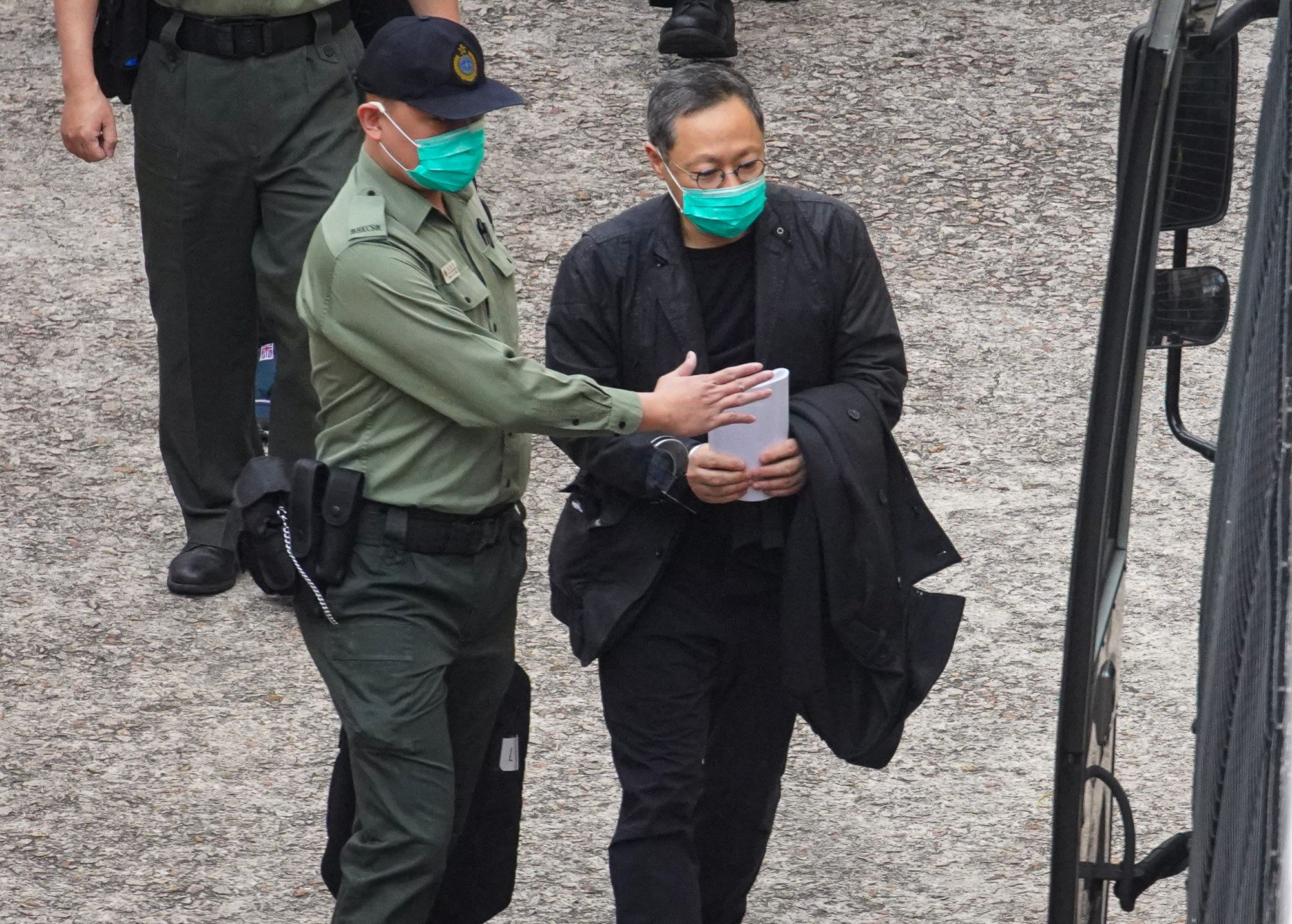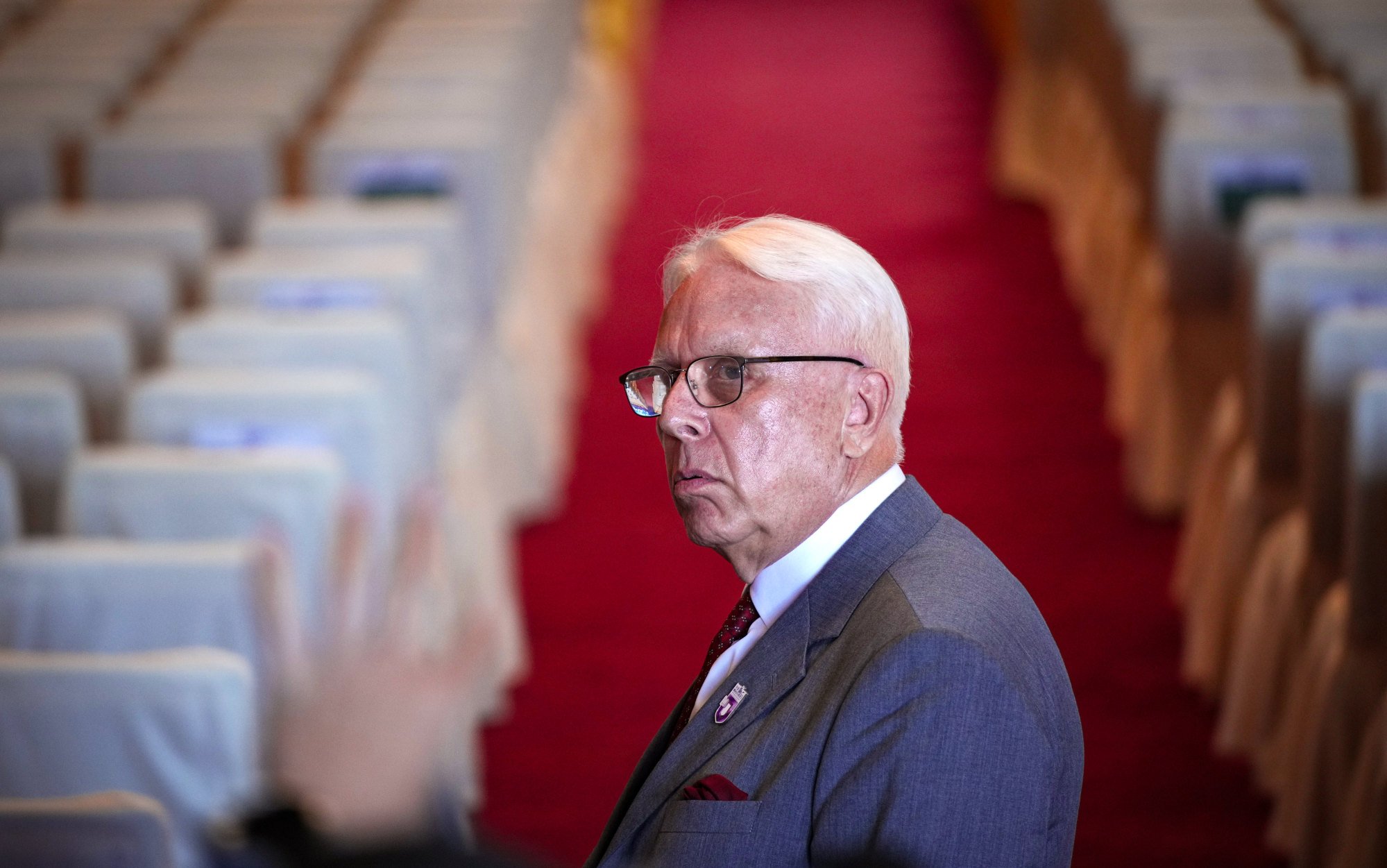The sentences handed down to former opposition activists in Hong Kong’s landmark national security case on Tuesday were proportionate, neither too lenient nor overly harsh, given the court’s decision that the plot they hatched undermined national security and was tantamount to wanting to overthrow the government, some legal experts have said.
The experts contacted by the Post also said the sentencing had its own unique circumstances that should not set a precedent for punishments in future subversion or national security-related trials.
At the close of the city’s largest and longest-running national security trial so far, 45 defendants received jail sentences ranging from four years and two months to 10 years for conspiracy to commit subversion. Another two defendants were cleared by the court in May.
Do you have questions about the biggest topics and trends from around the world? Get the answers with SCMP Knowledge, our new platform of curated content with explainers, FAQs, analyses and infographics brought to you by our award-winning team.
Thirty-one of the 45 pleaded guilty and 14 others were convicted in May for taking part in a plot in 2020 to overthrow the government by securing a majority in the Legislative Council and indiscriminately voting down budgets and other bills to trigger a constitutional crisis.
The court sentenced former University of Hong Kong (HKU) legal academic Benny Tai Yiu-ting, who it said had “advocated for a revolution” and masterminded the scheme, to 10 years in prison as a principal offender under Article 22 of the 2020 national security law.
Grenville Cross, a barrister and former director of public prosecutions, said: “There are 45 sentences, and whereas some seem on the lenient side, others appear about right.
“It is always important to look not only at the actual sentence imposed but also at the starting point, before the mitigation is factored in.”
Cross cited Tai’s case, noting the judges had set the starting point for his prison sentence at 15 years.
“This was reduced to 10 years because defendants who plead guilty at an early stage invariably receive a one-third discount, basically because it indicates remorse and saves the time of the court,” he said.

Professor Willy Fu Kin-chi, a member of semi-official think tank the Chinese Association of Hong Kong and Macau Studies and a vice-chairman of the Hong Kong Legal Exchange Foundation, shared similar views to Cross, and said a guilty plea was a significant mitigating factor.
Both Cross and Fu also dismissed speculation that the sentencing would set a precedent for future national security cases.
“As it is only a first instance judgment, if the sentences are challenged in the Court of Appeal, then its judgment will provide a precedent,” Cross said.
Fu concurred, adding: “Each case is different and judges will consider the sentencing in accordance with the nature and seriousness of the offence and other circumstances such as the amount of evidence.
“It is not to say that this time the sentencing is 10 years, then next time people found guilty of the national security offences will get more or less the same 10 years.”
The court also said the case’s prison sentences were also based on common law principles in addition to the Beijing-imposed national security law.
Article 22 of the national security law states that those considered “principal offenders” should receive prison sentences ranging from 10 years to life, while the range is three years to 10 years for “active” participants.
Those classified as “other participants” would receive no more than three years or “short-term detention and restriction”.
The court decided that the banding was of “reference value” but should “not be strictly applicable” in this case. The judges said they also took into account the common law offence of conspiracy.
While the judges took reference from the common law, the starting points for the prison sentences were in line with the penalties mandated under Article 22.
Barrister Ronny Tong Ka-wah, who also sits on the Executive Council, the city’s top decision-making body, stressed the importance of the court applying common law principles to the case.
“The sentencing may not be as severe as a lot of people originally thought. But it has its basis by reason of the fact that the court is effectively sentencing these defendants according to common law principles,” he said.
“It also showed respect for and it was also in line with the spirit of the ‘one country, two systems’ [governing principle] in Hong Kong.
“We are talking about serious crimes, albeit a conspiracy crime can simply involve a situation where the crime has yet to be committed ... Nevertheless from the sentencing, one can see the court will treat it seriously and I think people should be aware of this.”

Asked whether the court’s decision not to strictly apply the national security law in this case could weaken the effect of the Beijing-imposed legislation, Cross said: “In theory, it could. But in practice, it is unlikely to, particularly if the three sentencing bands are taken as reference points.”
He added: “It appears to me that it can be argued that the ruling was erroneous on this point ... I would not be surprised if it were challenged in the Court of Appeal.”
Fu also said the sentences showed the judges were able to uphold rule of law, and that the judiciary was independent and impartial.
“The judges discharge their duties fearlessly despite improper pressure from ‘anti-China forces’,” he said.
Professor Simon Young Ngai-man of HKU’s law department, however, believed the starting points for the sentences were “rather on the high side”.
“I don’t believe the court gave sufficient weight to the remoteness of the defendants’ conduct, that is, organising the primary elections, from the intended subversive acts, that is, elected legislators decisively vetoing the budget,” he said.
“If the scheme was always unlawful for violating the Basic Law, then those responsible for upholding and protecting the Basic Law would have taken timely steps to ensure that the scheme would never materialise.”
That meant that the scheme was “a fool’s errand” and the defendants should have been sentenced as such, Young said.
However, the three judges in their 82-page decision said the participants had put in “every endeavour to make it a success”, contrary to the claim they knew they had little chance of success or that it was an academic exercise.
Young also argued: “The court should not have made reference to sentencing bands under Article 22 of the national security law if they were legally inapplicable. It seems to have had the effect of unduly fettering the court’s discretion.”
But Chan Chak-ming, head of the Centre for the Rule of Law under the Hong Kong Policy Research Institute think tank, said the legislative intent of the national security law was to converge and complement local legislation.
“It is clear that local Hong Kong legal principles on sentencing were applied,” he said.
Chan, who is also a former Law Society president, added that the sentencing was in line with international practices, citing two overseas cases.
In the trial of Catalonia independence leaders in 2019, nine of the 12 accused received prison sentences of nine to 13 years for sedition, he noted.
Chan also pointed to the case of the US Capitol attack on January 6, 2020, which saw six members of right-wing groups the “Proud Boys” and “Oath Keepers” sentenced to between 12 and 22 years on charges of seditious conspiracy.
More from South China Morning Post:
- Hong Kong 47: 45 activists jailed for 4 to 10 years over plot to overthrow government
- Hong Kong 47: Benny Tai jailed for 10 years over plot to overthrow government
For the latest news from the South China Morning Post download our mobile app. Copyright 2024.





